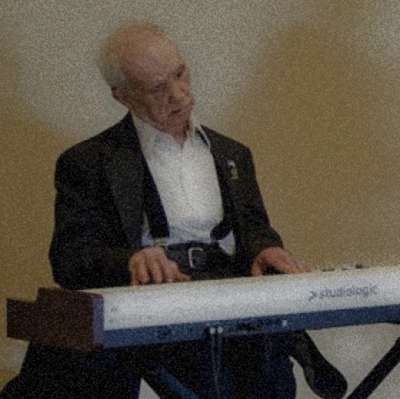_____
You may have noticed that Russia is in the news a bit these days. (It is tough to avoid). So, while revisiting James Lincoln Collier’s 1989 biography Benny Goodman and the Swing Era, the story of Goodman’s 1962 U.S. State Department sponsored tour of the Soviet Union caught my eye.
Collier reminds us that Goodman and his group – the first American band to tour the Soviet Union since the 1920’s – was considered by many to be too “old fashioned” for the times and that “many critics felt that the Ellington band, playing a more complicated and perhaps more worthy kind of music” should have been chosen for the tour instead. Nonetheless, given Goodman’s popularity around the world, he was considered a “safe choice” and got the gig. (Ellington eventually toured the Soviet Union in 1971).
“By 1962,” Collier writes, “Russian jazz musicians and the underground jazz fans were far more sophisticated about the music than Americans were aware. By means of smuggled records and especially the Voice of America broadcasts of Willis Conover, they had heard a great deal of jazz, and many of the best of them, like the famous Gennadi Golstein and the legendary Roman Kunsman…were beginning to go beyond bop into various kinds of experimental music.” Therefore, Collier writes that “the jazz community would find Goodman’s music out-dated, although they were nonetheless eager to hear the band.”
Putting together the band Goodman wanted for the tour was difficult, because, “rumors [were] circulating that Russia was not exactly Disneyland.” This, combined with the fact that many musicians knew how tough he could be to work for, meant that Goodman had some challenges in assembling musicians. One of them, the pianist John Bunch, said “A friend of mine had just been to Russia and he told me, don’t go. So I asked [Goodman] for more money than he was willing to pay me, and we must have talked for half an hour on the phone, long distance, which was sort of a big deal then. I probably asked four hundred dollars, and he was only willing to pay three hundred dollars, or something like that. But I got it out of him, because I really didn’t want to go. It was so hard to get him not to be thinking of money in terms of 1938.”
The most memorable writing on the Goodman tour of the Soviet Union comes from the band’s bassist Bill Crow, whose lengthy, three-part piece “To Russia Without Love” was published shortly after Goodman’s death, and which, according to Collier, “constituted a fairly complete catalogue of all the criticisms which have been leveled at Goodman by musicians – his insensitivity, his tendency to shove himself into the spotlight, his public butt-scratching, his niggling over money and his general attitude that he was King and the musicians were lackeys expected to accept with a smile whatever abuse he heaped on them.” Crow and the jazz writer Gene Lees – who published Jazzletter, in which Crow’s work was printed – received quite a bit of criticism for the pieces, especially given that Goodman had just died, but, as Collier writes, “it was an important story…because it was one of the few times that anybody had said in public the things that people in the music business had been saying about Goodman privately for years.”
“To Russia Without Love” is a wildly entertaining mix of Goodman stories and travelogue – written with the wit Crow is known for, and during the “good-old-days” of the Cold War.
_____
TO RUSSIA WITHOUT LOVE
by Bill Crow
Benny Goodman was probably the world’s best-known jazz musician. The average person thought of him as “The King of Swing,” master of both hot jazz and classical music, a statesmanlike bandleader who traveled the world as Musical Ambassador of Good Will for the United States. Among jazz fans he was also known as the first white bandleader to break the color bar when, in the 1930s, he hired Teddy Wilson, Charlie Christian and Lionel Hampton. His bands and his recordings were always first class, and countless musicians found their careers established, or placed on a firmer footing, because Benny hired them.
Insiders in the business know other aspects of his personality. Whenever veterans of Goodman’s bands find themselves working together, they tell stories about him, either to marvel once again at his paradoxical nature or to exorcise with laughter the traumatic experience of working for him. Musicians who were with him in 1936 swap similar stories with musicians who worked for him in 1986, the last year of his life.
Because his music was lovely, most musicians expected Goodman to be lovable as well. The stories about him make us laugh because they describe our astonishment at discovering his true nature. They may sound exaggerated to anyone who never dealt directly with the man. Benny apparently did something to insult, offend or bewilder nearly everyone who ever worked for him. He put together some wonderful bands, but he had a reputation for spoiling the fun. During my brief time with him, I watched him completely demoralize an excellent band.
Click here to continue reading











































Enlightening
Check out the link below to hear Mr. Crow discuss the tour:
http://www.jazzmuseuminharlem.org/oldsite/archive.php?id=840
Fasinating insights!
Jazz Mission to Moscow is an excellent artifact of this aggregation minus Goodman.